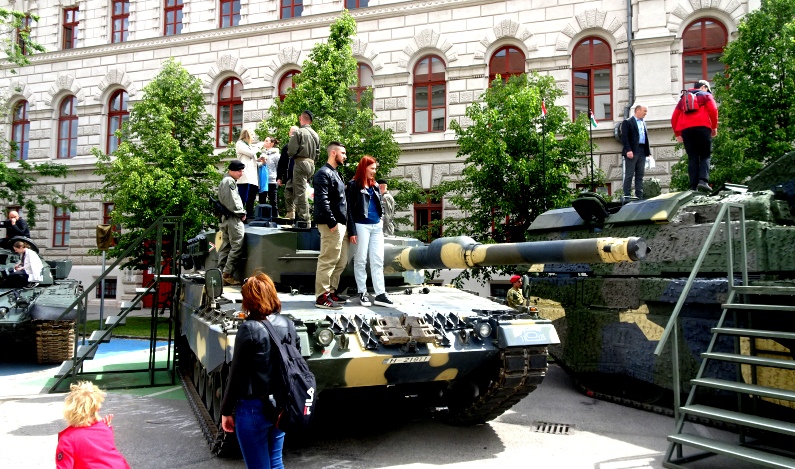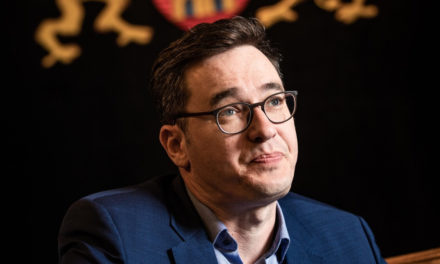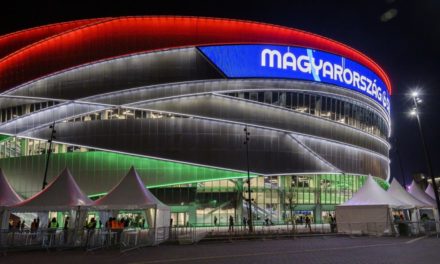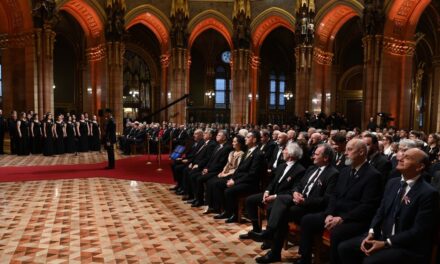The basic idea for Aspektus' Victory Day debate on May 9, which the organizers announced under the title From Nuremberg to The Hague, was that in mid-March of this year, the International Criminal Court based in The Hague issued an arrest warrant against Vladimir Putin.
Tamás Ádány , head of the Department of International Public Law at Péter Péter University, said that - despite the fact that in Hungary not only the Parliament, but also the government accepted the Statute of the International Criminal Court, which thus became binding for Hungary, the Hungarian authorities did not fulfill this obligation at the time can be implemented if the international treaty is promulgated by Hungarian law. However, this has not happened to date.
Therefore, if Vladimir Putin were to arrive in Hungary, he would have to be executed, but he could not be arrested.Based on the decision of the International Criminal Court, Vladimir Putin would not necessarily have to travel to The Hague, he could even defend himself before a Russian court - stated Tamás Ádány, who believes that the establishment of the Nuremberg Criminal Court established in 1945 was an important step in international law, since genocide and ethnic minorities by rejecting brutal crimes against them, it contributed to the expansion of humanitarian law worldwide.
Of course, impeachment of the Russian president in his country is only a theoretical possibility, not only because Russia is a nuclear power and Putin's power at home is stable, but also because
the Russian supreme investigative body - as a response to the Hague decision - has since initiated proceedings against the chief prosecutor and judges of the International Criminal Court.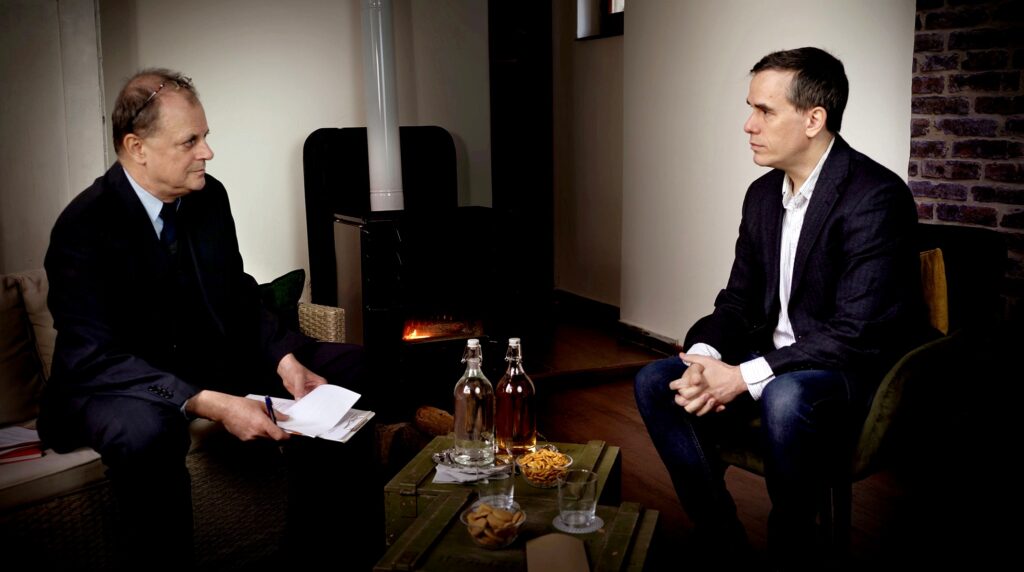
Conversation between Géza Gecse and Tamás Hoffmann (photo: Erika Ágnes Bujdosó)
As revealed in our introductory interview with international lawyer Tamás Hoffmann, Hungarian people's courts were established more than half a year before the establishment of the International Military Tribunal in Nuremberg, in accordance with the January 1945 Soviet-Hungarian armistice agreement, and functioned as a means of impeachment. The full interview can be viewed HERE.
As part of the people's court proceedings in Hungary, four Hungarian prime ministers or first-ranking political leaders were put on trial in 1945 and 1946. In addition to Béla Imrédy and László Bárdossy, Dömé Sztójay and Ferenc Szálasi were not only convicted, but also executed. While in the case of the latter two, cooperation with a foreign power could be clearly established, in the case of Béla Imrédy, who successfully implemented the Győr program, and László Bárdossy, who held the post of Prime Minister in 1941-42, there are countless moments that the Hungarian public is not aware of.
Bárdossy, for example, during the 1941 invasion of the South Region - Pál Teleki's vision - tried to ensure that Hungary did not become an active initiator of the destruction of the South Slavic state. That way
the Hungarian National Guards marched into the South Region only after Slavko Kvaternik, one of the founders of the Ustasa movement, had already declared an independent Croatia, and as a result Yugoslavia fell apart.The entry into the war against the Soviet Union took place in such a way that Governor Miklós Horthy Because the governor's decision could only have been made following the resolution of the "joint ministry", i.e. the government. The responsible Hungarian prime minister, László Bárdossy, who is 22 years younger than the governor, swallowed hard and bowed to the will of the head of state. In other words, he behaved "irresponsibly". However, he made sure that the Hungarian step was almost only symbolic. The 40,000-strong Hungarian army deployed in the territory of the Soviet Union dwarfed the army of 3 million with which Hitler's Germany attacked the Soviet Union. In addition, Bárdossy withdrew the Rapid Corps back to Hungary in December of that year.
We also know that in December 1941 he had no intention of declaring war on the United States of America. This step was finally taken because, following the Japanese aggression, Hitler responded by going to war against the United States of America, and Hungary, the ally, could not evade the German pressure. Pál Pál , doctor of the Hungarian Academy of Sciences, says that there is no doubt that this was not a good policy, in fact, he said that he thought that László Bárdossy was a bad politician, but Bárdossy should not have been executed.
Edmund Veesenmayer was questioned only as a witness , who had at least as much of a role in everything that happened in Hungary in 1944 as the Hungarian prime ministers. In the Wilhelmstrasse trial in Nuremberg in 1949, Veesenmayer finally received a 20-year prison sentence, but only served 2 years of it. He then died in Darmstadt in December 1977 in bed and between pillows.
The question after that is: is there any truth in history? To which the answer is: when yes, when no. Yes, when the ethical plane of history works. And there is no justice when it is not.What came as a surprise at this year's victory day celebration in Moscow, which was much shorter compared to all the others, was the presence of those "near-foreign" leading politicians whose appearance no one expected. A total of seven. Such as Belarusian President Lukashenka or Kazakh Tokayev .
He also reported on this in the Transylvanian News program of Cluj Television. The interview is available HERE.
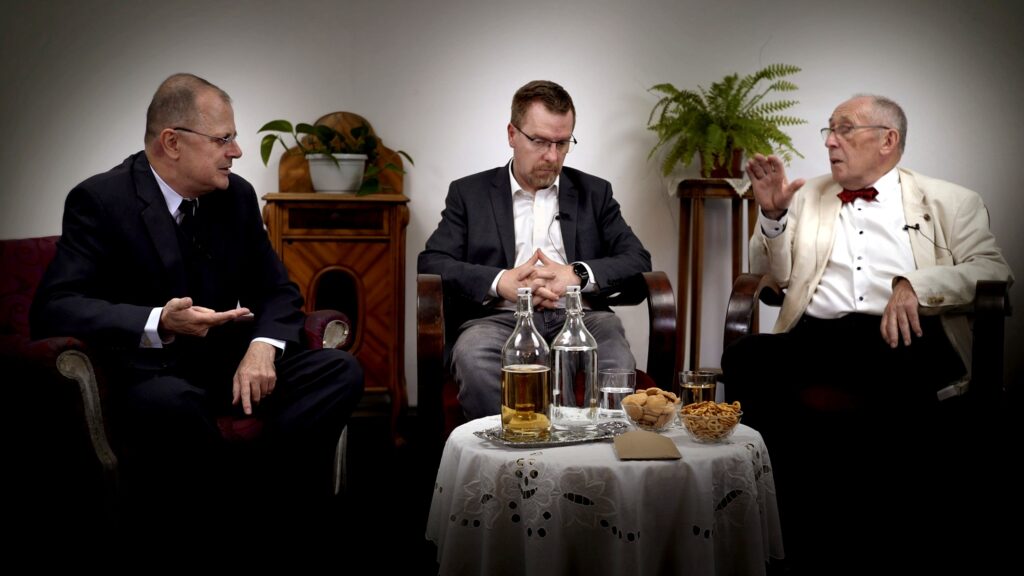
Géza Gecse, Tamás Ádány and Pál Pritz at the Aspektus conference (photo: Erika Ágnes Bujdosó)
Author: historian Géza Gecse

